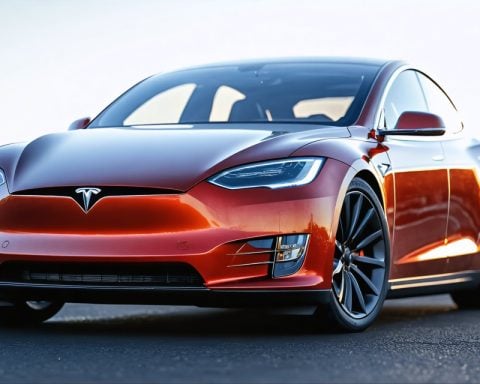Introducing a New Charging Solution
In a groundbreaking move for electric vehicle (EV) charging, a Canadian startup has developed a concept that could change how we power our cars in urban environments. Kiwi Charge, based in Toronto, believes that traditional fixed chargers are outdated and ineffective for modern needs. Instead, this innovative company envisions autonomous robots roaming parking structures at night, charging vehicles while owners peacefully sleep.
This unique approach addresses the significant challenge faced by many condo and apartment residents, who often lack accessible charging options. Census data reveals that nearly one-third of Canadians live in multi-residential buildings, where installing conventional chargers can be prohibitively expensive, especially in older structures.
Kiwi Charge’s technology is approximately 40% cheaper to implement than its traditional competitors and can seamlessly connect to vehicles without requiring any modifications. The autonomous robots are designed to navigate parking areas, locating cars and initiating charging without human intervention. They utilize a proprietary cable system that extends from the robot to the vehicle, ensuring a hassle-free experience.
Anticipation is building as Kiwi Charge prepares for a pilot project with Tridel Group, one of Canada’s largest real estate developers. This partnership marks the next step towards revolutionizing EV charging infrastructure, potentially paving the way for broader adoption and a sustainable future for electric vehicles. As interest from major automakers grows, Kiwi Charge is poised to redefine how we power our cars in urban landscapes.
Revolutionizing Urban EV Charging: The Future is Here
Introduction
As the electric vehicle (EV) market expands rapidly, innovative solutions for EV charging are crucial. A Canadian startup, Kiwi Charge, is stepping up to tackle this challenge with a remarkable approach to urban EV charging. Their autonomous robot technology promises to redefine how drivers power their vehicles in densely populated environments.
How Kiwi Charge Works
Kiwi Charge’s system revolves around autonomous robots that navigate parking lots and garages after hours. These robots are engineered to identify parked vehicles and connect them to a charging system without any human involvement. This self-operating capability not only enhances convenience but also anticipates the growing demand for EV infrastructure, especially in residential areas lacking traditional charging stations.
Benefits of Kiwi Charge’s Technology
1. Cost Efficiency: Kiwi Charge’s solution is approximately 40% less expensive to implement compared to traditional charger installations, making it a financially viable option for property managers and developers.
2. No Vehicle Modifications Needed: Vehicles can be charged without any adaptations, which simplifies the integration of this technology across various car models.
3. Sustainability: By promoting easier access to charging, Kiwi Charge is expected to encourage more drivers to switch to electric vehicles, thus contributing to environmental sustainability and reducing the urban carbon footprint.
Use Cases
Kiwi Charge’s robots are particularly beneficial for residents of multi-residential buildings, where access to EV charging has been a significant barrier to adoption. These buildings often struggle with electrical upgrades needed for traditional charging stations. Kiwi Charge’s technology allows these structures to accommodate EVs using existing infrastructure more efficiently.
Pilot Project Insights
A pilot project with Tridel Group, a leading Canadian developer, will provide critical insights into the practicality of this system in real-world scenarios. This collaboration represents a significant leap forward in making EV charging accessible to urban dwellers, potentially influencing city planning and development norms.
Market Analysis
As urbanization continues to rise, so does the demand for innovative charging solutions. With nearly one-third of Canadians residing in multi-residential units, the need for accessible EV charging will only intensify. Companies like Kiwi Charge are uniquely positioned to fulfill this need, especially as they tap into partnerships with established real estate players focused on sustainable development.
Innovations and Future Trends
The charging solution from Kiwi Charge aligns with global trends towards automation and sustainability. With advancements in robotics and charging technology, the future may see a widespread adoption of mobile charging units not just in residential areas but also in commercial spaces and public parking facilities.
Conclusion
Kiwi Charge stands at the forefront of a revolution in urban EV charging. By leveraging autonomous technology, they are setting the stage for a more accessible, efficient, and eco-friendly approach to electric vehicle infrastructure. As they move towards implementation with real estate partners, the implications of their success could resonate far beyond Toronto, creating new standards in urban infrastructure planning.
For more information about electric vehicle trends and innovations, visit Electrive.












